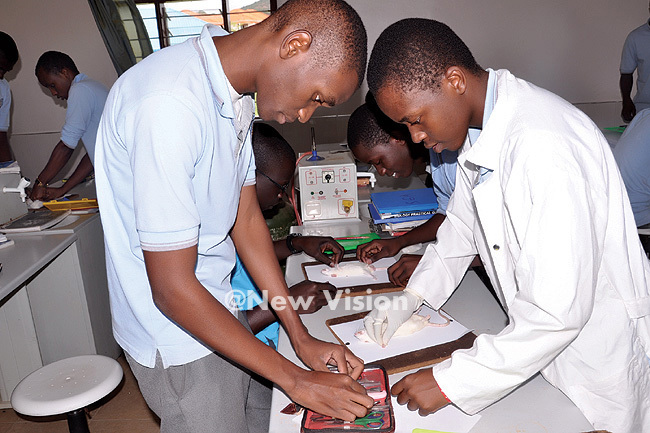Breaking News
- Flexible Remote Work Opportunity for University Students: Earn $100–$250 Per Month ...Read More
- Ministry of Education and Sports Azerbaijan Government Scholarships For 2025-2026 Academic Year ...Read More
- Government Sponsorship Undergraduate Admission Lists 2025-26 for Makerere University ...Read More
- Ministry of Education And Sports: Egyptian Government Scholarships 2025-2026 Academic Year ...Read More
- Ground Breaker Full Scholarship for girls to study Software Engineering 2025 July Intake ...Read More
- Tony Elumelu Foundation Entrepreneurship Programme (TEEP) 2025 for young African Entrepreneurs ...Read More
- DESIGNING FUTURES 2050 International Design Competition 2025 (€15,000 prize) ...Read More
- Ground Breaker Full time Scholarship for girls to study Software Engineering 2025 Intake ...Read More
- Ministry of Education And Sports Algerian Vocational Training Scholarships for 2024-2025 AY ...Read More
- Ministry of Education and Sports Advert for the Algerian Government Scholarships for 2024-2025 ...Read More
Entrepreneurship to be made compulsory for S.1 & S2

The move, according to the Government, is intended to equip young people with entrepreneurial skills to create their own jobs.
Just like science subjects, entrepreneurship will become compulsory for S.1 and S.2 students come 2020.
The move, according to the Government, is intended to equip young people with entrepreneurial skills to create their own jobs, thus catering for the growing young population in the country.
John Okumu Emorut, a curriculum specialist for business education at the National Curriculum Development Centre, says whereas the current O’level curriculum for S.1 and S.2 students has a package of 20 subjects, including entrepreneurship, they were advised by the Government to merge some subjects that had similar content.
The Government is currently reviewing the O’level curriculum.
“In the current curriculum, we have commerce, principles of accounts and entrepreneurship. We were, however, advised to merge the three subjects to come up with entrepreneurship education because there was an overlap in content between those subjects,” Okumu said.
Okumu explained that the deliberate move to have young people obtain entrepreneurial skills will also address school dropout rates, adding that whereas some of the learners do not reach complete S4, they will have acquired skills to enable them live a decent life.
“Should entrepreneurship create a big impact in making learners create their own jobs and fighting unemployment, it will be made compulsory up to Senior Four just like some science subjects,” he said, adding that the programme will go through a periodic review.
Some of the compulsory science subjects taught at O’level are biology, physics, chemistry and mathematics.
Okumu made the remarks during the launch of the Assessment and Training Package (ATP) for entrepreneurship by the directorate of industrial training (DIT) in Kampala on Friday.
The ATP was developed by the directorate of industrial training to have learners assessed in practical approach.
The Uganda National Examinations Board currently conducts a summative assessment of learners.
Patrick Byakatonda, the acting director DIT, said the assessment and training package is a competence-based education and training tool that consists of one’s occupational profile, training modules and assessment instruments.
“Whereas the occupational profile provides for information on what a person is expected to do competently in the world of work, the training modules will qualify the how and how well a person must do the job,” Byakatonda said.
ATP seeks to add value to the skills of the learners, enabling them to attain the practical skills required to identify opportunities, develop simple business plans, start or run profitable enterprises wherever they live.
Source * https://www.newvision.co.ug
Top Courses Currently Admitting
-
Diploma in Medical Laboratory Technology
Uganda Institute of Allied Health and Management Sciences (Mulago Paramedical)
-
Bachelor of Early Childhood Education.
Ndejje University
-
Bachelor of Adult and Community Education
Makerere University
-
Diploma in Infrastructure Management Services
SAI PALI Institute of Technology & Management
-
Diploma of Health Administration (Modular)
Uganda Christian University






























